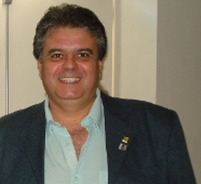KEYNOTE SPEAKERS
Gender-Inclusive Software (in English)
Wednesday, November 11th, 2020, 10:00 - 11:30, Time-Zone GMT-3 (Curitiba-Brazil)
Chair: Leonardo Murta
Description:
Gender inclusiveness in software companies is receiving a lot of attention these days, but it overlooks a potentially critical factor: software itself. But how can software professionals assess whether their software supports diverse users? And if they find problems, how can they fix them? To help fill this gap, we developed GenderMag, a systematic method for software professionals to find and fix “gender inclusivity bugs” in software interfaces and workflows. At the core of the method are 5 cognitive facets drawn from a large body of foundational work on gender differences from computer science, psychology, education, communications, and women's studies. We present GenderMag and its foundations, present results of software professionals’ experiences finding and fixing inclusivity bugs in their software, and then introduce a new generalization of GenderMag called InclusiveMag along with our early experiences with it.
Keynote Speaker:
 |
Margaret Burnett is a Distinguished Professor at Oregon State University. She began her career in industry, where she was the first woman software developer ever hired at Procter & Gamble Ivorydale. A few degrees and start-ups later, she joined academia, with a research focus on people who are engaged in some form of software development. She was the principal architect of the Forms/3 and FAR visual programming languages, and co-founded the area of end-user software engineering, which aims to improve software for computer users that are not trained in programming. She pioneered the use of information foraging theory in the domain of software debugging, and leads the team that created GenderMag, a software inspection process that uncovers gender inclusiveness issues in software from spreadsheets to programming environments. Burnett is an ACM Fellow, a member of the ACM CHI Academy, and an award-winning mentor. She has served in over 50 conference organization and program committee roles. She is also on the Academic Alliance Advisory Board of the National Center for Women & IT (NCWIT).
Até que sou sensível, mas ainda não tenho como te garantir... São tantas coisas envolvidas em meu ciclo de vida que preciso de sua ajuda para resolver... (Português)
Thursday, November 12th, 2020, 10:00 - 11:30, Time-Zone GMT-3 (Curitiba-Brazil)
Chair: Sheila Reinehr
Description:
Assistimos ao longo dos anos a evolução sistêmica e a “invasão” do software no dia a dia da sociedade. As soluções inicialmente construídas de forma monolítica e isoladas deixaram de ser, atualmente, o elemento central da inovação em software. É verdade que aprendemos e evoluímos bastante na engenharia desses sistemas. Entretanto, sistemas de software contemporâneos (sensíveis ao contexto, Internet das Coisas, Indústria 4.0, sistemas ciber-físicos, dentre outros) tem dominado o cenário tecnológico e se tornado cada vez mais presentes e influentes nas atividades da sociedade. Entretanto, a engenharia desses sistemas de software contemporâneos tem revelado preocupações e propriedades intrínsecas e multidisciplinares, para as quais as tecnologias de software convencionais não são apropriadas. Nesse sentido, os riscos associados ao uso de sistemas de software contemporâneos que têm sido diariamente disponibilizados para a sociedade ainda são altos, com alguns sistemas provocando perdas humanas. Essa palestra tem a intenção de apresentar alguns desses desafios e chamar atenção da comunidade para a engenharia de sistemas de software contemporâneos.
Keynote Speaker:
 |
Guilherme Horta Travassos é engenheiro Eletricista (UFJF, 1985), Mestre (1990) e Doutor (1994) em Engenharia de Sistemas e Computação pela COPPE/UFRJ. Realizou estágio de Pós-Doutorado na UMDCP juntamente com o SEL/NASA (USA - 98/00), tendo como focos principais experimentação aplicada na Engenharia de Software e linha de produto de software. Atualmente é professor titular e coordenador do Programa de Engenharia de Sistemas e Computação (PESC) da COPPE/UFRJ. Seus interesses de pesquisa estão inseridos no contexto da Engenharia de Software Experimental e na Engenharia de Sistemas de Software Contemporâneos, atuando principalmente nos seguintes temas: qualidade de software (VV&T), sistemas ubíquos e sensíveis ao contexto, Internet das Coisas, simulação em engenharia de software, ambientes e ferramentas para apoiar o desenvolvimento e experimentação em software. Lidera o grupo de Engenharia de Software Experimental da COPPE/UFRJ e faz parte da ISERN. É membro da SBC e membro profissional da ACM. É editor associado do periódico Elsevier- IST e compõem o corpo editorial dos periódicos SBC/JSERD, World Scientific/IJSEKE e e-Informatica Software Engineering Journal (eISEJ).Colabora com a indústria de software através dos projetos de pesquisa & desenvolvimento desenvolvidos pela COPPE/UFRJ. Informações complementares podem ser obtidas em www.cos.ufrj.br/~ght
Genome Data Science-based Solutions for Personalized Health Care (em Espanhol)
Friday, November 13th, 2020, 10:00 - 11:30, Time-Zone GMT-3 (Curitiba-Brazil)
Chair: Claudia Ayala
Description:
Everybody accepts that understanding the Human Genome is a big challenge for the humanity. It will take at the very least decades to achieve such a goal reasonably well. But new advances that are showing promising results come continuously. Day after day new data are is provided and new information is derived from them. As DNA sequencing technologies improve and evolve, it is an evidence that the rate of data generation at a local level is increasing dramatically. In this scenario, assuring the interoperability and consistence of data at the global level becomes both a challenge and a need. To face these problems adequately, the most advanced Data Science technologies are strongly required, with a particular emphasis on how relevant Conceptual Modeling must be in order to understand the ontological ground of relevant genomic concepts. By Genome Data Science we refer to the set of methods and techniques to be applied to cover the needs of better data capture, organization and storage, improved data analysis and interoperability, and more efficient data standardization with the support of foundational ontologies. This idea is in the “Genome” of this keynote. Using Advanced Conceptual Model and Data Science Technologies, there is an opportunity to understand the secrets of life that the Genome Code hides. More and more data that relate genotype and phenotype are available, with especially attractive clinical applications. These ideas will be approached in the keynote, showing that the challenge of understanding the human genome can suppose a conceptual revolution: understanding the genome could allow to improve human being features, something that has never in our hands as humans.
Keynote Speaker:
 |
Oscar Pastor is fulll Professor and Director of the Research Center on "Métodos de Producción de Software (PROS)” at the Universidad Politécnica de Valencia (Spain). He received his Ph.D. in 1992. He was a researcher at HP Labs, Bristol, UK. He has published more than four hundred research papers in conference proceedings, journals and books, received numerous research grants from public institutions and private industry, and been keynote speaker at several conferences and workshops. Chair of the ER Steering Committee, and member of the SC of conferences as CAiSE, ESEM, ICWE, CIbSE or RCIS, his research activities focus on conceptual modeling, web engineering, requirements engineering, information systems, and model-based software production. He created the object-oriented, formal specification language OASIS and the corresponding software production method OO-METHOD. He led the research and development underlying CARE Technologies that was formed in 1996. CARE Technologies has created an advanced MDA-based Conceptual Model Compiler called IntegraNova, a tool that produces a final software product starting from a conceptual schema that represents system requirements. He is an internationally recognized researcher in the domain of Conceptual Modeling, being ER Fellow since 2010 and having being awarded with the Peter C. Chen in 2017.. He is currently leading a multidisciplinary project linking Information Systems and Bioinformatics notions, oriented to designing and implementing tools for Conceptual Modeling-based interpretation of the Human Genome information.




